
2024 Environmental, Social and Governance (ESG) Report

4th Modern Slavery Statement released Modern Slavery and Code of Conduct Training in

1,117


2024 Environmental, Social and Governance (ESG) Report

4th Modern Slavery Statement released Modern Slavery and Code of Conduct Training in

1,117
At Lynas we are proud to be an ethical and responsible rare earths producer. We recognise our unique position as the only scale producer of separated rare earth materials outside China and always seek to ensure that our operations meet the high environmental, social and governance (ESG) standards expected by our people, communities, customers, investors and our other important stakeholders.
Lynas’ value starts at our high grade, long life Mt Weld rare earths mine in Western Australia and continues through our wholly owned processing facilities to the finished products exported from our advanced materials plant in Malaysia.
In line with our commitment to managing our operations in a way that is safe for our people, responsible for the environment, and beneficial for our host communities, we are pleased to present the 2024 ESG Report which sets out our performance in the 2024 financial year (1 July 2023 – 30 June 2024) and our objectives for the year ahead.
This year we commenced production at our new Kalgoorlie Rare Earths Processing Facility in Western Australia, completed our largest works program in over a decade at Lynas Malaysia, and progressed our Mt Weld exploration and expansion programs. Together, over $1.5 billion has been invested in expansion capital.
Recently we also announced the signing of contracts for a 65MW gas-firmed hybrid renewable power station for our Mt Weld mine and concentration plant. The power station is designed to deliver up to approximately 70% average annual renewable energy as well as reliable baseload thermal capability and will enable a staged transition from our current diesel power plant. Once the renewable components (solar, wind and battery storage) are fully operational, it is forecast to reduce Greenhouse Gas (“GHG”) emissions by approximately 60,000t CO2-equivalent per year when compared to a diesel-only power station of equivalent size.
From a human rights perspective, preventing modern slavery in our operations and in our supply chains remains a focus for our company. Modern slavery and code of conduct training was held this year for both our people and our suppliers and received excellent feedback.
In keeping with our commitment to transparency and continuous improvement, we continue to enhance our ESG reporting and have commenced preparations for Australia’s new climate-related financial reporting requirements.
We welcome your feedback on this ESG Report and look forward to updating you on our progress in the 2025 financial year.
John Humphrey Chair, Board of Directors
Amanda Lacaze CEO & Managing Director

The Lynas Rare Earths (Lynas) Environmental, Social and Governance (ESG) Report 2024 outlines the Company’s ongoing commitment to report progress towards the principles of the United Nations Global Compact (UNGC), to which we are a signatory, and towards achieving the UN Sustainable Development Goals. The UN Global Compact is the world’s largest corporate sustainability initiative.
The content of this report is also informed by the Global Reporting Initiative (GRI) Sustainability Reporting Guidelines which are referenced in the ASX Corporate Governance Council, Corporate Governance Principles and Recommendations, 4th edition.
This report covers all operating sites and has been prepared in accordance with the GRI Standards: Universal Standards (GRI 1, GRI 2, GRI 3), plus the new GRI 14: Mining Sector 2024. A copy of the GRI Content Index with links to relevant sections of the document is provided in the Navigation Index in Appendix 2.
The 2024 ESG Report has also been prepared with reference to the World Economic Forum’s 21 core ESG metrics and disclosures across Four Pillars – Principles of Governance, Planet, People and Prosperity.
Lynas has an excellent track record of compliance with local laws and regulations and adopts international best practices in all jurisdictions.
Lynas participates in the following external accreditation and ESG initiatives:
• UN Global Compact
• Global Reporting Initiative (GRI)
• Task Force for Climate-related Financial Disclosures (TCFD)
• ISO Standards 9001, 14001, 45001
• Together for Sustainability (EcoVadis Sustainability Assessment)
• Life Cycle Assessment of our products
• Development of ISO TC 298 Rare Earth
• UN Guiding Principles on Business and Human Rights
• MSCI ESG ratings
• ISS ESG ratings
• S&P Global ESG ratings
• Sustainalytics ESG ratings
• FTSE Russell ESG ratings

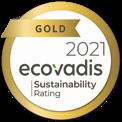


The annual ISO surveillance audits were conducted at Mt Weld and Lynas Malaysia during the year and both operating sites were recertified for ISO 9001:2015 (Quality Management), ISO 14001:2015 (Environmental Management) and ISO 45001:2018 (Occupational Health and Safety Management). Mt Weld and Lynas Malaysia have been certified since 2012. Lynas’ new Kalgoorlie site was under commissioning in FY24 and commenced first production in the June quarter 2024.
In the June 2024 quarter, the excellent operational management of the Lynas Malaysia advanced materials plant was recognised with Lynas Malaysia receiving an award for ‘Best License Holder for Control Category 4 2021–2023’ by the Malaysian Department of Atomic Energy (AELB). This award recognises Lynas Malaysia’s achievement of ‘Very Satisfactory’ ratings in all safety audits, the highest possible rating, and the plant’s excellent record of regulatory compliance.
A summary of Lynas’ entities, operations and financial statements for 1 July 2023 to 30 June 2024 are reported separately in the FY24 Annual Report available at https://lynasrareearths.com/investors-media/.
All references to Lynas, the Group, the Company, refer to Lynas Rare Earths Ltd (ACN 009 066 648) and its subsidiaries. All references to a year are the financial year ended 30 June 2024 (FY24), unless otherwise stated.
The process to verify the integrity of this report includes internal controls such as incident tracking, management assurance over compliance obligations and environmental risks which are reviewed annually and as required, and Board oversight. External assurance is provided by annual audits of environmental management practices, regulatory monitoring including Department of Environment reporting in Malaysia and Department of Water and Environmental Regulation, Department of Energy, Mines, Industry Regulation and Safety reporting, NGER (National Greenhouse and Energy Reporting) and tailings facility audits in Western Australia.
Lynas participates in external verification initiatives including annual ISO accreditation audits and biennial EcoVadis sustainability assessments. No additional external assurance has been sought regarding the content of this report.
Lynas appreciates any feedback which will help the Company improve future reporting and communication with stakeholders. We invite you to send your comments or suggestions to: investorrelations@lynasre.com
Lynas Rare Earths Ltd (Lynas) is a publicly listed company incorporated in Australia and headquartered in Perth, Western Australia. Lynas is the only significant producer of separated rare earths outside of China and sources feedstock from our high grade, long life Mt Weld rare earths deposit in Western Australia. Lynas was established as an environmentally responsible rare earths producer and the materials we produce are traceable from mine to finished product. Lynas also offers mine to motor traceability with selected downstream manufacturing partners.
The rare earths concentrate produced at Mt Weld undergoes initial processing at our Kalgoorlie Earths Processing Facility in Western Australia or at the Lynas Malaysia advanced materials plant in Gebeng, Malaysia, to separate the rare earths from the surrounding material. The resulting mixed rare earths are then separated into rare earth products at Lynas Malaysia.
Lynas’ rare earth products include Neodymium and Praseodymium (NdPr) used in magnets, Lanthanum (La), Cerium (Ce) and a Mixed Heavy Rare Earths compound (SEGH). Lynas plans to commence production of two Heavy Rare Earth products, Dysprosium (Dy) and Terbium (Tb) in CY2025. Rare earth materials are used in a range of high tech and green tech applications including hybrid and electric vehicles, wind turbines and electronics. The key markets for these materials are manufacturing supply chains in east Asia, Europe and North America.



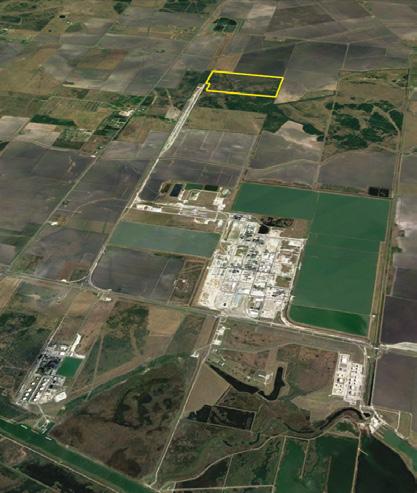
Lynas aims to be the supplier of choice for our customers and a leader in sustainably produced rare earths. This vision lives through our people and the way we do business. Shared values and a culture which unlocks the potential of our people are fundamental to our success.
Our values
Care Achievement Diversity Expertise Sustainability
We care for and respect each other, our communities and the environment. We make sure we all go home safe and well.
We are resilient and committed. We overcome challenges to achieve our goals.
We are driven to be the world’s best in Rare Earths and to earn the respect of our customers.
We are a multicultural company. We value and embrace diversity.
We are passionate about contributing to a sustainable future and green technologies.
Our vision and values guide our approach to ESG. We live and work by our values every day.
Our ESG approach
• Health & safety is our #1 priority
• Diverse and engaged workforce
• Protecting human rights and preventing modern slavery
• Meeting the challenges of climate change
• Nurturing biodiversity
• Conserving water and reducing emissions and waste
• Making a positive contribution to our communities
• Respecting the values and cultural heritage of our communities
• Innovating for environmentally responsible technologies
• Engaging with stakeholders
• Managing risks GOVERNANCE
• Being ethical and compliant
At 30 June 2024, Lynas’ Board of Directors had six members – five are independent and the sixth is our Managing Director and Chief Executive Officer (CEO). The Chairman of the Board is an independent Non-Executive Director. The Board has three Committees, each of which is chaired by an independent Non-Executive Director and the Board and each Committee has a Charter setting out its responsibilities.
The FY24 Lynas Rare Earths Corporate Governance Statement outlines the skills and experience each Board member contributes, as well as their independence, tenure, responsibilities for the full Board and its committees, and other significant Board positions. For more information on our corporate governance practices, see our Constitution and Board Charter which are available on the Lynas website at https://lynasrareearths.com/about-us/ corporate-governance/.
At a Board level, ESG (including climate change) is overseen by the Board on recommendations from the Audit, Risk & ESG Committee and the executive. At an executive level, the Lynas Leadership Team is responsible for ESG including climate change.
The Lynas Board has adopted the industry best practice gender diversity target of 40:40:20. Following the retirement of Lynas Chairman and Non-Executive Director Kathleen Conlon in November 2023, at 30 June 2024 33.3% of the Board of Directors were women. Further information on diversity at Lynas is provided in Section 6.1 Dignity & Equality.
The performance of the Board, its committees and individual Directors is evaluated on a regular basis.
This report covers key environmental, social and governance aspects which reflect the material issues of Lynas’ operations. Material issues are those where we have a significant effect on the economy, environment and/ or society (positive or negative), and which have a substantive influence on the assessments and decisions of stakeholders.
The process for determining FY24 material issues comprised four key steps: research, identification, prioritisation and validation. This process was undertaken with a cross-functional team to ensure that we considered the full scope of the effects of our activities, both within our own operations and through interactions with investors, customers, communities, suppliers and other stakeholders. Research included material issues guidance from the GRI Mining Sector Standard 2024 and the SASB Metals & Mining Materiality Finder.
The following materiality matrix for FY24, presents material issues for Lynas in FY24 together with an assessment of impact and importance to our stakeholders. These material issues are continued areas of focus for the Company as we drive sustainable value creation.
WATCHLIST
r
r
Significance of environmental, social and economic impacts Impo
LOW
MATERIAL
A Health and Safety
B Water and wastewater management
C Waste management
D Energy management
E Business model resilience
WATCHLIST
F Supply chain management
G Employee engagement and diversity
H Human rights and community
I GHG emissions
J Product quality
Our material priorities are aligned with the United Nations’ Sustainable Development Goals:
Health and Safety


Water and Wastewater Management
Waste Management


Energy Management
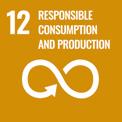
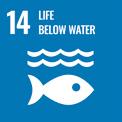
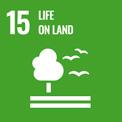





Business Model Resilience
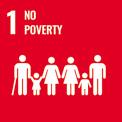

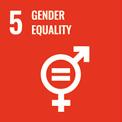



In addition to the materiality assessment, Lynas engages with stakeholders on an ongoing basis – ranging from an annual customer satisfaction survey to regular information sharing and consultation with our local communities and engagement with investors (see Appendix 1: Stakeholder Engagement).
We communicate progress to investors though our Annual Report (available in the Investors section of our website www.lynasrareearths.com), through financial reports and investor briefings for quarterly, half-year and full-year results and at the Annual General Meeting. We also communicate to a wide range of stakeholders through presentations to meetings and conferences, community consultations and engagements, media interviews, and since 2019, via annual Sustainability/ESG Reports available on our website at www.lynasrareearths.com
Anti-bribery and corruption risk assessment
In FY24, Lynas had operating sites in Australia and Malaysia. Transparency International’s 2023 Corruption Perceptions Index1 scores countries on the perceived level of public corruption on a scale of 0 (highly corrupt) to 100 (very clean). According to the Index, Australia scored 75 out of 100 while Malaysia scored 50 out of 100, above the average global score of 43 and 3 points higher than in 2022.
Training on ethical behaviour and anti-bribery and corruption
Lynas has zero tolerance for bribery and corruption and the Lynas Rare Earths Code of Conduct and Lynas Rare Earths Anti-Bribery Policy (available at lynasrareearths.com/about-us/corporate-governance) outline the standard for business ethics, integrity and behaviour.
In FY24, Lynas staff and Board members completed annual Code of Conduct and anti-bribery and corruption training. In line with our Conflicts of Interest policy, employees were also required to complete an annual Code of Conduct and Conflict check.
Lynas employees are required to comply with multiple policies regarding ethical behaviour that include our Code of Conduct, available in both English and Malay. Employees who are found to have breached our Code of Conduct or our Anti-Bribery Policy are subject to disciplinary action which may include termination of their employment and referral to relevant authorities.
Lynas continues to work through Transparency International UK Guidance on Good Practice Procedures for corporate anti-bribery programs to identify opportunities to improve our anti-bribery and corruption program.
There were zero confirmed incidents of corruption in FY24. Further information is provided in Section 9 Data Performance Tables.
Lynas engages with internal and external stakeholders on anti-bribery and corruption initiatives. In FY24, a new global anti-bribery and corruption supplier assessment questionnaire was developed and implemented as part of supplier onboarding. Anti-bribery & corruption training was also made available to Lynas Malaysia’s local and international suppliers.
4.3.1 Seeking advice about ethical and lawful behaviour and organisational integrity
Lynas is committed to ensuring that employees, contractors, business associates and community members can raise concerns regarding bribery, corruption or other improper conduct without being subjected to victimisation, harassment or discriminatory treatment, and to have such concerns properly investigated.
There are multiple avenues for employees to raise concerns or report incidents. This includes: raising issues or concerns with a supervisor or manager, the VP People & Culture, the General Counsel, or via an independently operated, confidential Disclosure Line.
1 https://www.transparency.org/en/cpi/2023/
In 2023, Deloitte Conduct Watch was engaged to operate a new disclosure line, Lynas SpeakUp. This service is available in both English and Malay. Disclosure line training was provided to all staff as part of annual Code of Conduct & Anti-bribery and Corruption training in 2023 and 2024.
The Lynas Whistleblower Policy contains protections and confidentiality provisions for whistleblowers, consistent with applicable legislation, as well as contact details for the Lynas SpeakUp disclosure line.
Demonstrating a continued awareness of the Lynas SpeakUp disclosure line, there were 3 reports of unethical behaviour to the disclosure Line in FY24. All reports were investigated and a breakdown of reports is provided in Section 9 Data Performance Tables. Awareness of reporting mechanisms was assessed as part of the 2024 Staff Engagement Survey, see section 6 Caring for our People.

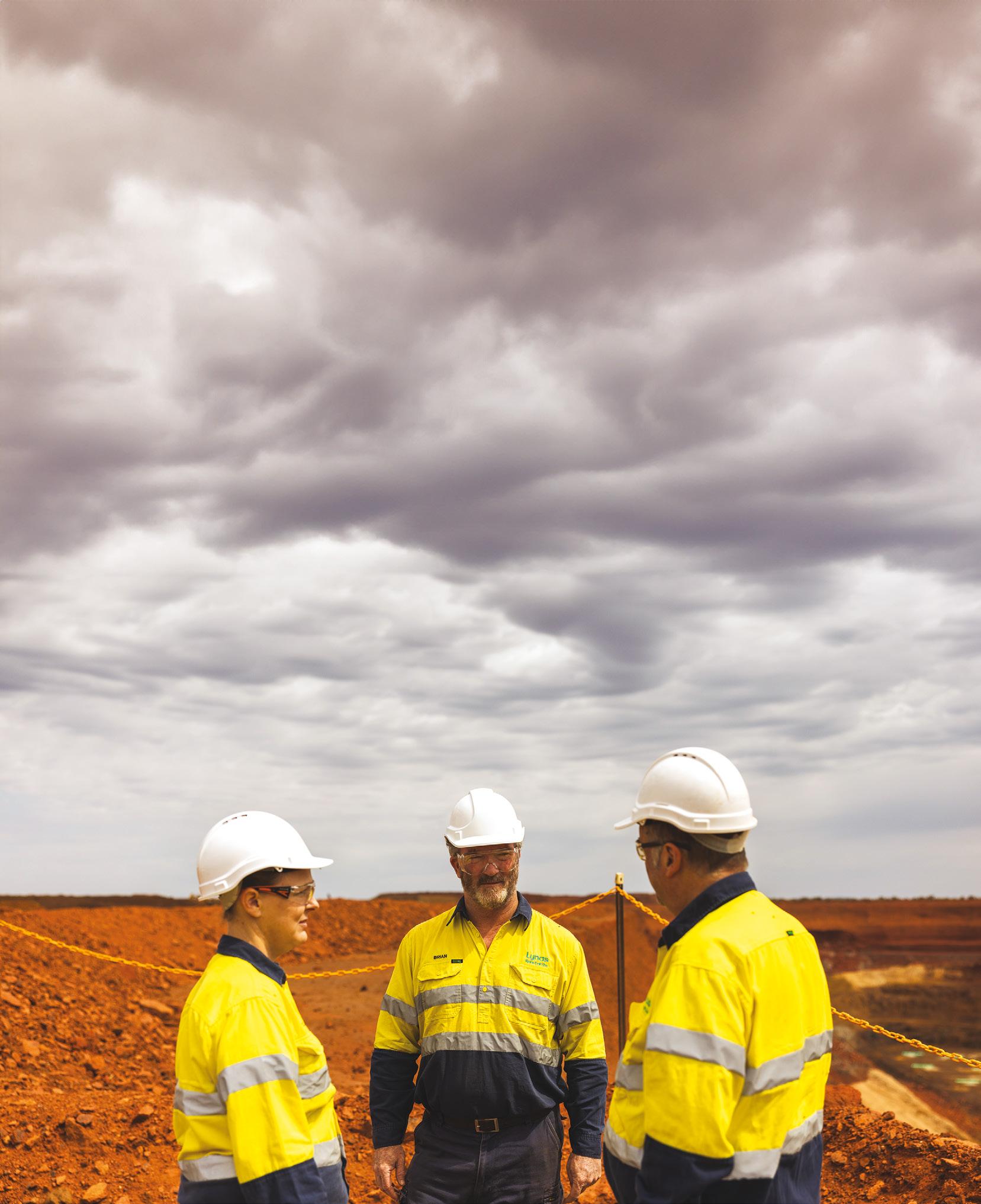
With the objective of implementing a more inclusive and accessible disclosure line solution for our employees, suppliers and communities in Australia and Malaysia, Lynas assessed a range of global and local disclosure line offerings in FY23. The disclosure line needed to offer a range of channels for reporting (i.e. phone, email, web), availability of the service in a range of languages, and the ability for whistleblowers to anonymously communicate with investigators on requests for additional information or to check on the status of a report.
Deloitte Conduct Watch was selected to operate the Lynas SpeakUp disclosure line. Training on the new service was provided as part of the annual staff Code of Conduct training in June 2023 prior to the launch of the new service and again in June 2024. To aid staff awareness, communication on the disclosure line has included staff emails and intranet posts (in both English and Malay) as well as posters displayed at all sites and offices in English and Malay language. Feedback from staff has been very positive to date.
Lynas takes a proactive approach to risk management. Risks and opportunities are identified on a timely basis and the Group’s objectives and activities are aligned with these risks and opportunities. The Lynas Board has an established Audit, Risk & ESG Committee and a Health, Safety and Environment Committee. Lynas has a Risk Management Policy and a Risk Management Framework for oversight and management of material business risks.
Lynas operates in a changing environment and is therefore subject to factors and business risks that will affect future performance. Risk assessments are updated by operations and management and reported to the Board of Directors. In FY24, Lynas continued to improve risk management systems and processes and enhanced the Group’s internal audit function following its introduction in FY23. The FY24 Financial Report (available at LynasRareEarths. com/reporting-centre) sets out principal risks and uncertainties that could have a material effect on Lynas’ future results, including climate-related risks and opportunities.
Further information in relation to risk oversight and management is outlined in the annual Corporate Governance Statement available at https://lynasrareearths.com/about-us/corporate-governance/.
Governance of information and cyber security risk is overseen by the Board on advice from the Audit, Risk & ESG Committee. At an executive level, the CFO oversees Group IT services and operations and is responsible for information security. Updates are provided to the Audit, Risk & ESG Committee.
Lynas undertakes network penetration testing and regular IT audits and cyber security health checks in conjunction with external specialists to confirm compliance with security standards. Lynas continues to work towards applying the standards of our IT security management system under the NIST standard.
In light of Lynas’ unique position in the global rare earths supply chain, an internal policy on Generative AI tools was also released in FY24 and cyber security awareness training and phishing simulation testing was conducted for all staff during the year.
Social media disinformation remains an ongoing issue for many industries and the June 2022 report by cyber security firm Mandiant highlighted the extent of this in the rare earths industry. Given the ongoing nature of disinformation campaigns, the only effective long term response is to ensure that all stakeholders have access to accurate information. Lynas continues to work to ensure that factual and scientific information is available to our customers, communities, shareholders, media and other stakeholders. Social media safety and education programs for staff were also rolled out during the year.
Critical incident planning and emergency management are essential to the Lynas risk management process. Lynas has established operational strategies, organisational structure, and management processes for use by Lynas employees, contractors, and external agencies during an emergency response.
During the year, whole-site and area evacuation drills for Lynas employees and contractors were conducted. Skills training for the site emergency response teams included self-contained breathing apparatus, firefighting, hazardous chemical management, vertical rescue, and road crash rescue.
This year all operations emergency management processes were aligned with key aspects of the Australasian Inter-service Incident Management System (AIIMS). This process has been tested through multiple mock exercises and desktop exercises utilising the site's Incident Management Team, including:
• Pit Floor Failure
• Mobile equipment rollover
• Fixed and Mobile plant failure causing a hazardous chemical spill
• Failure during lifting operations
All site evacuations, mock exercises, and desktop exercises conducted are formally reviewed. This review process, including the identification of actions, and tracking of any areas for improvement, ensures that our emergency response processes continue to evolve and improve, instilling confidence in our ability to handle any situation.

Lynas’ remuneration objective is to ensure that shareholder value is maximised by the attraction and retention of talented people.
Executive remuneration consists of a fixed pay component and an ‘at risk’ or performance related component. This comprises a Short Term Incentive (STI) which supports the delivery of annual performance goals selected by the Board considering the budget and Lynas’ strategic initiatives and a Long Term Incentive (LTI) focused on long term performance goals which create sustained value for shareholders. The STI and LTI have also been extended to include employees in roles that have considerable influence on outcomes associated with capital management, operational leadership and major capacity growth projects or have specialist expertise in strategic areas for Lynas.
Lynas also offers a company-wide employee profit share scheme (excluding those eligible for STI/LTI) to provide all employees an opportunity to contribute to and benefit from the company’s success.
The Lynas Short Term Incentive (STI) rewards performance in core business drivers. In FY24, this included EBITDA, NdPr production and NdPr unit operating costs, as well as key non-financial performance metrics that are of particular importance to shareholders, including Strategic Plan/Business Plan Progress; Health, Safety and the Environment (HSE); Sustainability; and People and Culture.
The Long Term Incentive (LTI) recognises that capital projects are a substantial growth driver for the company. The LTI for the period from the beginning of FY22 to the end of FY24 issued in 2021 has two components which are designed to be aligned with the creation of sustainable long term shareholder value. The first of these components is Relative Total Shareholder Returns (TSR) assessed over a three year period, relative to other peer group companies. The second component is related to strategic targets aligned with Lynas’ strategic growth objectives.
Further details are available in the Remuneration Report of the 2024 Annual Report available on our website at https://lynasrareearths.com/investors-media/.
In Australia, Auditor independence is regulated under the Corporations Act 2001, Australian Auditing Standards issued by the Auditing and Assurance Standards Board and APES 110 Code of Ethics for Professional Accountants (including Independence Standards) issued by the Accounting Professional & Ethical Standards Board (APESB). Audit partner rotation occurs after a maximum of 5 years. The most recent rotation of Lynas’ audit partner was in 2023.
As the only significant producer of separated rare earths outside of China, Lynas is actively engaged with governments around the world and contributes our expertise to addressing critical minerals supply chain challenges. Governments outside China, including Australia, Japan, the United States and the European Union, are taking action to secure a diverse and resilient supply of rare earth materials for industry.
Lynas Rare Earths is a member of the Western Australian Government’s Future Battery & Critical Minerals Industry taskforce and the European Raw Materials Alliance (ERMA).
5.5.1
2024 reports filed by lobbyists representing Lynas Rare Earths are available from the U.S. House of Representatives at: https://disclosurespreview.house.gov.
5.5.2
As a leader in the Australian critical minerals industry, Lynas is a member of key industry associations. Through these associations, we share and develop industry best practice and contribute to industry and policy discussion and debate.
Lynas’ major industry association memberships are with the Minerals Council of Australia (MCA) and the Chamber of Minerals & Energy of Western Australia (CME WA). Both the MCA and CME WA support the Paris Agreement and its goal of net zero emissions by 2050 and Lynas is committed to this goal.
Details of memberships of associations can be found in Appendix 3: Memberships and Initiatives.
At June 30, 2024, Lynas had 1117 employees across Malaysia and Australia. Contractors working on Lynas sites are held to the same high safety standards as Lynas employees and receive equivalent safety training.
The biennial company-wide Employee Engagement Survey was undertaken in June 2024 and achieved a participation rate of 87% (up from 59% in 2022).
The survey found:
• 94% of staff agreed with the statement “I believe the work we do is important because Lynas is a sustainable and environmentally responsible producer of rare earths” (up from 93% in 2022)
• 88% of staff would recommend Lynas as a great place to work (up from 87% in 2022)
• 94% of staff agreed with the statement “I feel safe at work” (up from 93% in 2022)
• 88% of staff agreed with the statement “I am respected at work” (up from 86% in 2022)
For the first time, questions were included to assess the effectiveness of reporting and disclosure mechanisms for unsafe or unlawful behaviour. These questions highlighted that:
• 99% of staff agreed with the statement “I know how to report unsafe or unlawful behaviour”
• 90% of staff agreed with the statement “I feel confident that something will be done if I make a report on unsafe or unlawful behaviour’’
Site-based action plans are being developed in response to feedback received in the Employee Engagement Survey.
6.1.1 Diversity and inclusion % (age, gender, ethnicity)
Valuing and embracing diversity is a core value at Lynas and we recognise the need to set diversity measures to monitor our progress. In FY24, diversity objectives included gender diversity objectives as well as cultural diversity objectives. The objectives set by the Board for achieving gender diversity are included in Section 9 Data Performance Tables.
Lynas continues to focus on the development of women within our business. At the end of FY24, female employees represented 24% of total employees (down slightly from 25% in FY23) and the percentage of female employees in senior executive positions remained constant at 25% (defined as all managers and above including CEO, CEO-1, -2, -3). The total number of females in operating roles increased from 20% at the end of FY23 to 21% at the end of FY24.
Priorities in FY24 also included increasing the number of First Nations peoples in our business and increasing workforce mobility to promote cultural diversity.
A high level of staff mobility has occurred between Australia and Malaysia, encouraging cultural diversity and sharing of skills across our operating locations in FY24. This included deploying a number of specialists to assist with the commissioning and ramp up of our new Kalgoorlie Rare Earths Processing Facility and at our Mt Weld operations. A 40% improvement in employment of First Nations people in both Australia and Malaysia was achieved in FY24.
Lynas prioritises local employment opportunities in each of the regions in which we operate. In FY24, local employees represented 93% of the workforce and expatriates accounted for 7% of the workforce, including Malaysian team members assisting with the ramp up of the new Kalgoorlie Facility.
The median age of employees in FY24 was 30-50 years old. A breakdown of diversity data is provided in Section 9 Data Performance Tables.
Lynas is committed to gender equality and is working to continue to reduce gender pay gaps in our organisation. We recognise there is work to be done in our organisation and across the critical minerals industry to attract and retain women and we have set a target of 30% women in our workforce by the end of 2025.
In Australia, Lynas Rare Earths reported under the Workplace Gender Equality Act (WGEA) for the year ending 31 March 2024 for Australian operations.
In February 2024, Lynas published our first gender pay gap results for employees in its Australian operations in line with the Workplace Gender Equality Amendment (Closing the Gender Pay Gap) Act 2023. This data represents an overview of Lynas Rare Earths’ Australian operating sites and offices which employed 221 people (excluding the CEO) in the 2022–2023 reporting period. Of these employees, 26% were women and 74% were men. The gender pay gap is the difference in average earnings between women and men in the workforce and is therefore influenced by the composition of the workforce.
Key figures from the 2022–2023 reporting period showed the gender pay gap for managers and senior managers at Lynas is closer to zero than the average for the industry comparison group:
• Average total remuneration gender pay gap of 16.9% vs industry average of 23.1%
• Median total remuneration gender pay gap of 25.7%, consistent with industry at 25.7%
We continue to progress initiatives to ensure Lynas is an employer of choice for women. This includes:
• International Women’s Day events held in Malaysia and Australia to celebrate the women in our workforce and provide networking opportunities
• A Flexible Working Procedure in Australia which includes opportunities for flexible work arrangements for people with caring responsibilities
• A new employee Parental Leave Policy in Australia which includes full pay for the first 18 weeks of parental leave for the primary caregiver of the child (biological or adoption related)
• A Family and Domestic Violence Procedure to assist employees and ensure that managers and supervisors are equipped to support employees experiencing family and domestic violence
• Providing wellness rooms equipped with a fridge and provide a private space for breastfeeding or expressing.
The WGEA public data reports and Lynas Gender Pay Gap Report are available on our website at https://lynasrareearths.com/about-us/corporate-governance/ or on the WGEA website at www.wgea.gov.au/.
We value our people and recognise the dignity that comes from fair compensation. All Lynas employees receive pay and entitlements that are consistent with legislative requirements in Australia and Malaysia and applicable legislation including working time and conditions is followed. Lynas also provides benefits, leave and allowances to foster employee wellbeing.
In Malaysia, we offer training, flexible working hours for non-operations employees, maternity leave above statutory requirements, part-time work transition from maternity leave, paternity leave and health schemes. Lynas Malaysia also operates a childcare facility for the children of Lynas Malaysia team members.
In Australia, we offer training and development opportunities for our Mt Weld workforce. As a best practice employer, we offer 18 weeks of parental leave for the primary carer of the child (biological or adoption related) and continue to make superannuation payments throughout this period. We also offer full pay for three weeks of parental leave to Lynas employees with 12 months continuous service to provide support to their dependents where an employee’s partner, de facto, spouse, has given birth to a child and is the primary caregiver.
Lynas is committed to paying and exceeding a living wage. Lynas Malaysia monthly wages (without overtime) have been assessed against available living wage data for Kuantan where the Lynas Malaysia plant is located, and all employee salaries are at or above the living wage.2
2 https://rmke12.ekonomi.gov.my/ksp/storage/event/124_24_puan_nik_noor_ainoon_belanjawanku_reference_budget_for_malaysian.pdf
According to an economic impact assessment prepared by an external organisation in 2022, 99% of jobs created at Lynas Malaysia are in the middle and high-income categories and average income for a Lynas Malaysia employee is approximately three and a half times the average income in the state where the Lynas Malaysia plant is located and approximately three times the national average income.3
At Lynas, safety is our first priority. This means we are focused on production that is safe for our people, safe for our communities, and safe for the environment.
6.2.1
Lynas’ safety reporting is aligned with the ISO 45001 (Occupational Health and Safety Management) guidelines for the recording and reporting of occupational injuries and illnesses. Lynas’ safety performance data includes both employees and contractors.
The 12-month rolling lost time injury frequency rate as at 30 June 2024 was 1.04 per million hours worked (June 2023: 1.2 per million hours worked). In addition, the 12-month total recordable injury frequency rate at 30 June 2024 was 5.0 per million hours worked (June 2023: 3.2 per million hours worked). In FY24 the lost time frequency rate has decreased, however restricted work injuries have risen over the period and will be a focus of health and safety programs in FY25.
Care and ensuring that everyone working at Lynas goes home safe and well is a core value of our company. Our safety approach includes safety training, audits, behaviours, and meetings.
Lynas has a global safety leader and a Group-wide Safety Council to review and assess safety concerns and priority actions on monthly basis and whenever required.
In FY24, approximately 4,500 individual Health & Safety assessments or awareness programs were completed by Lynas employees. This includes training in mental health.
Critical risks and controls to manage them are communicated through the Golden Rules training program in Malaysia and the Life Saving Rules program in Western Australia.
Lynas always seeks to share learnings across sites and in FY25 the Group has set an objective to rollout the PASS safety program which successfully operates at Lynas Malaysia to Lynas’ Australian sites.
The health and wellbeing of our people is a priority for Lynas. Health and wellbeing treatment and support is consistently made available to both direct and contract employees. Lynas’ operating sites have on-site medical assistance.
An independently operated Employee Assistance Program (EAP) is also available to all staff on a confidential basis.

During FY24, Lynas Malaysia was temporarily shutdown from mid-November until end of December.
During this time, upgrade works were undertaken. The works completed during the shutdown were the biggest changes to the facility since the initial construction of the Lynas Malaysia plant.
The works saw 30 contractor companies with over 600 personnel mobilise on site. All planned modifications were completed without any injuries sustained. This was a fantastic result and highlighted the focus on safety that was maintained on site, even when the number of people on site increased.
6.2.3
As noted in 5.2 Critical incident planning, this year all operations emergency management processes were aligned with key aspects of the Australasian Inter-service Incident Management System (AIIMS) and this process was tested through multiple site mock exercises and desktops utilising the site’s Incident Management Team.
6.3.1

At Lynas, we believe our people should have meaningful training and development opportunities. Training and development opportunities are provided to 100% of Lynas Rare Earths employees in Malaysia and Western Australia.
Lynas employees participate in annual performance reviews and each respective department manager works with their team members on development opportunities with support from the People and Culture team. Lynas has a formal talent management process that includes mentoring and succession planning as well as initiatives focused on skills development, such as executive mentoring programs and career advancement programs to develop skills and experience that prepare employees for senior management.
Lynas employees received an average of approximately 38 hours of training per employee in FY24. The training provided to Lynas employees includes functional/process training, Safety, Health, Environment, Cyber Security training, and wellbeing and other skills.
6.3.2 Human rights and preventing modern slavery
Lynas Rare Earths is committed to protecting the human rights of all people with whom we have dealings, including our employees, our business partners, and all people in our host communities. This is reflected in our Human Rights Policy.
Our responsibility to protect human rights and manage the risk of modern slavery applies to our own global operations as well as to our supply chains and we take this responsibility seriously. In FY24 we released our fourth Modern Slavery Statement in line with the Australian Modern Slavery Act, outlining our commitments and our actions to prevent modern slavery in our organisation and in our supply chains. This Statement and associated policies and codes of conduct are available at https://lynasrareearths.com/about-us/corporate-governance/.
Lynas is a signatory to the United Nations Global Compact, which includes the protection of human rights and the elimination of all forms of forced and compulsory labour as part of its Ten Principles. In FY24 Lynas participated in UN Global Compact education sessions on human rights and the environment.
6.3.3
As a lawful and compliant company, Lynas follows applicable laws in the countries in which we operate. Our Human Rights Policy, annual Modern Slavery Statement, and our Supplier Sustainability Policy and Code of Conduct, outline our commitments to upholding human rights and preventing modern slavery. We have an independently operated Disclosure Line that is available to employees, contractors, business associates and members of the community to report any concerns or breaches of our policies.
6.3.4

Lynas does not operate in high risk jurisdictions. As outlined in our Human Rights Policy, Lynas is committed to ensuring that security at all operations is managed in line with the protection of human rights.
6.3.5
Lynas has policies and procedures in place to mitigate the risks of modern slavery at our operations and in our supply chains. This includes our Human Rights Policy, employee Code of Conduct, and Supplier Sustainability Policy and Code of Conduct which requires all suppliers to agree to respect the basic rights of employees, implement strong health and safety and environmental protection standards, and not use “conflict minerals”. Our policies and codes of conduct state our commitment not to engage in or support the use of any form of forced, compulsory or illegal labour and expressly forbid the employment of anyone under the minimum legal working age or fifteen (15) years old; whichever is higher.
Lynas has assessed the risk of modern slavery among our people as very low due to the policies and procedures we have in place. This includes prioritising local employment, directly supervising all on-site employees and contractors, and following a process to ensure that no illegal foreign workers are engaged as either employees or contractors at our sites. In FY24 we conducted the annual Modern Slavery training for Malaysian and Australian staff. We also held a ‘Supplier Sustainability’ training session for Malaysian and international suppliers, following the positive feedback on our Modern Slavery training session for suppliers in FY23.
Lynas will continue to identify opportunities to strengthen our human rights approach, including through relevant external engagement and initiatives. This includes preventing modern slavery, including forced labour and human trafficking.
In line with the Commonwealth Modern Slavery Act 2018 Guidance for Reporting Entities, the Lynas Rare Earths FY24 Modern Slavery Statement will be released prior to 31 December 2024.
Lynas aims to minimise effects on the environments in which we operate and to minimise our lasting footprint. As a large energy user, whilst also being a producer of technologies that are essential to a low carbon economy, we understand we have a role to play by actively reducing our Greenhouse Gas (GHG) emissions and efficiently using both energy and water at our sites.
The Lynas Environmental Policy outlines our commitment to care for and minimise our effects on the environments in which we operate. The Lynas Malaysia and Mt Weld operating sites are accredited to the 14001:2015 International Standard for Environmental Management Systems.
Lynas has never been involved in an incident resulting in harm to public health or the environment, reflecting the strength of our processes and policies.
OUR FY24 ACHIEVEMENT
Assessed ISSB/proposed Australian mandatory climate-reporting requirements against current reporting; completed procurement for new company-wide GHG emissions data management system.
OUR FY25 GOAL
Prepare for new Australian mandatory climate-reporting requirements including implementation of new GHG data management system.

Lynas supports the objectives of the Paris Agreement in respect of Greenhouse Gas (GHG) emissions and in November 2023 updated the Lynas Climate Change Policy.
Life Cycle Assessment of GHG emissions is part of capital expenditure assessments. Lynas also undertakes Life Cycle Assessments as part of the sustainable management of the product life cycle. In FY22, an independent validation of the Lynas Life Cycle Assessment methodology was undertaken by an independent third party. This found the LCA conforms with ISO standards 14040 and 14044.
Lynas remains focused on reducing energy use and emissions in our operations, including through mining and processing efficiencies and cleaner energy sources.
For energy consumption data by site, please refer to Section 9 Performance Data Tables.
Mt Weld energy use
Lynas’ Mt Weld operation generates electricity on site to meet all site needs. Energy consumption at Mt Weld decreased in FY24 compared to FY23, primarily due to mining activities not recommencing on site until the 4th quarter of FY24.

As noted in Case Study 3, as part of the Mt Weld expansion project, a transition from the current diesel power station to a gas-firmed hybrid renewable hybrid power station is planned to reduce GHG emissions intensity. An early works contract was awarded in 2023 and contracts for the purchase of power from a 65MW gas-firmed hybrid renewable power station were signed in July 2024.
Commissioning activities at Lynas’ Kalgoorlie Rare Earth Processing Facility were completed during the year and first production of Mixed Rare Earth Carbonate (MREC) commenced in the June 2024 quarter.
During the year, gas (liquified petroleum gas (LPG)) and electricity were used on site, with electricity supplied by the South-West Interconnected System (SWIS) transmission network. According to publicly available sources, the SWIS electricity grid connected to Kalgoorlie generated approximately 35.9% of electricity from renewable sources in FY24.4
Following grid outages in FY24, Lynas continues to explore renewable electricity opportunities in the Kalgoorlie region.
The Lynas Malaysia plant primarily uses natural gas and grid electricity. Some diesel is consumed in machines and processes. In FY24, installation of a 0.75MW rooftop solar array progressed at Lynas Malaysia and is scheduled for completion in FY25.
Direct and indirect greenhouse gas (GHG) emissions are categorised into three broad scopes by the Greenhouse Gas Protocol guidance5:
• Scope 1 is direct GHG emissions that occur from sources that are owned or controlled by the company, e.g. generation of electricity, heat, or steam, emissions from combustion in owned or controlled boilers, furnaces, vehicles, etc;
• Scope 2 is all indirect GHG emissions from the consumption of purchased electricity;
• Scope 3 is other indirect emissions that are a consequence of the activities of the company, but occur from sources not owned or controlled by the company e.g. extraction and production of purchased materials; transportation of purchased fuels; and use of sold products and services.
In compliance with the Australian National Greenhouse and Energy Reporting Act (NGER), Lynas reports Scope 1 and Scope 2 Greenhouse Gas emissions associated with the Mt Weld and Kalgoorlie sites in Western Australia to the Clean Energy Regulator.
Scope 1 and Scope 2 GHG emissions data is available in Section 9 Performance Data Tables.
Scope 3 emissions are divided into different categories and Appendix 4 provides an overview of the evaluation status for each category.
4 Source: OpenNEM
5 https://ghgprotocol.org/
OUR FY24 ACHIEVEMENT
Hybrid power station early works contract awarded and works commenced on site; contracts for supply of power from approx. 65 MW gas-firmed hybrid renewable power station signed 22 July 2024.
OUR FY25 GOAL
Complete construction of gas plant as part of staged installation of hybrid renewable power station.

On 22 July 2024, Lynas announced the signing of contracts with Zenith Energy, a leading independent power provider, for the supply of power from a gas-firmed hybrid renewable power station to Lynas’ Mt Weld mine and concentration plant, near Laverton, Western Australia. These contracts follow an early works contract awarded in FY24.
Upon completion, the new hybrid power station’s approximately 65MW total installed capacity will comprise a 24MW Wind Farm (4 wind turbines), a 7MW solar PV farm, and a 12MW/12MWh Battery Energy Storage System (BESS). This renewable facility will be supported by a 17MW high efficiency gas fired power station. To provide redundancy in the back-up system for our 24/7 operation, 5MW of diesel standby generation will be installed. The hybrid power station has been designed to deliver up to approximately 70% average annual renewable energy as well as reliable baseload thermal capability. It is forecast that the power station will reduce Greenhouse Gas (“GHG”) emissions by approximately 60,000t CO2-equivalent per year when compared to a diesel-only power station of equivalent size.
Once fully operational, the hybrid power station will have the ability to deliver “engine off” operation, providing renewables-only power during periods of high renewable energy production.
Lynas Rare Earths recognises the global challenges of climate change and supports the Paris Agreement goal to limit the global temperature increase.
In FY24, the Lynas Greenhouse Gas Policy was updated. The new Lynas Climate Change Policy outlines the following actions:
• Target Net Zero emissions by 2050
• Develop science-aligned GHG reduction targets, with the objective of limiting the global temperature increase to well-below 2°C
• Consider greenhouse gas emissions as part of our business strategy and decision-making
• Pursue innovative solutions to reduce energy use and increase energy efficiency in our direct operations
• Adopt a sustainable management approach over the entire product life cycle by conducting Life Cycle Assessments
• Identify opportunities to reduce greenhouse gas (GHG) emissions in our operations and advocate for emissions reductions throughout the Rare Earths value chain
• Transparently report on our greenhouse gas emissions and our reduction plans and progress.
Lynas conducted Life Cycle Assessments for our products and calculated an emission average of 30kg CO2-eq per kg of REO from our internal LCA on year 2019 basis.
A Life Cycle Assessment for permanent magnet motors used in water pumps has also been conducted in conjunction with value chain partners. This assessed the manufacturing data from two electric motor pumps, one an induction motor using copper coil for an electromagnet, and the second a permanent magnet motor using neodymium-ironboron magnets. The manufacturing of the pump from rare earth permanent magnets was shown to have 50% lower carbon dioxide equivalent emissions and over 10 years, will produce 75% lower carbon dioxide equivalent emissions. In addition, the permanent magnet motor pump was 50% lighter than the induction motor pump.
Lynas’ FY24 Climate-related financial disclosures, including analysis of physical climate scenarios to identify and assess exposure to physical risks and opportunities to increase resilience, are available in the FY24 Annual Report at: https://lynasrareearths.com/investors-media/reporting-centre/financial-reports/.
Lynas has been following developments in climate-related reporting. The new Australian mandatory climate-related financial reporting regime was passed by Australian Parliament in August 2024. Lynas is preparing to report against the new regime which will be effective for reporting periods commencing on or after 1 January 2025 (i.e. Lynas’ FY26).
Lynas’ key biodiversity goals are to:
• Protect the environments in which we operate;
• Avoid adverse effects on biodiversity through application of the mitigation hierarchy; and
• Achieve zero significant environmental incidents.
Lynas does not operate in or adjacent to key biodiversity areas such as Commonwealth or State listed priority ecological communities, threatened ecological communities, or World Heritage areas and in FY24 there were no significant environmental incidents.
The Lynas Environmental Policy outlines the company’s commitment to protect biodiversity at operational sites located in, or adjacent to protected areas, or areas of high biodiversity value outside of protected areas, through application of the mitigation hierarchy . The Lynas Leadership Team is responsible for the implementation of the Lynas Environmental Policy which is overseen by the Board of Directors.
The Mt Weld mine site is situated on approximately 2800 hectares of mining leases. The site is in a remote area of Western Australia in the Murchison Interim Biogeographic Regionalisation for Australia (IBRA) bioregion.
Since 2011, Lynas has been completing terrestrial and subterranean ecological surveys conducted by experienced external biodiversity experts to understand the flora, vegetation and fauna (both vertebrate and invertebrate) species on land and below the surface to complete detailed environmental impact assessments. The flora and vegetation of Mt Weld are typical of the region and are dominated by a mulga woodland with some localised mallee and spinifex communities. No rare or geographically restricted plant species are known to occur. No conservation reserves or Ecological Sensitive Areas intersect the project area.
At Mt Weld, Lynas implements an Environmental Management Plan that includes a mitigation hierarchy that sets objectives and targets for flora, fauna, surface water, and ground water. We perform quarterly groundwater seepage monitoring surrounding our Mt Weld tailings storage facilities with water analysis performed by an independent third party. No groundwater quality impact has been recorded. In addition, 15 years of vegetation health monitoring has shown no significant impacts on flora surrounding the Mt Weld site. Annual Rehabilitation Monitoring is undertaken, including vegetation trials. Under Ministerial Statement 1216, the first Mt Weld Compliance Assessment Report will be submitted in FY25.
Mt Weld has an approved Radiation Management Plan (RMP) as prescribed by the Work Health and Safety (Mines) Regulations, 2022 and with an eleventh iteration approved by Department of Energy, Mines, Industry Regulation and Safety in May 2024. The RMP meets the WorkSafe Western Australia (2024), Managing naturally occurring radioactive material (NORM) in mining and mineral processing: Guide. Ongoing monitoring has shown there is no increase in background radiation.
As part of the Mt Weld Expansion project, a Fauna Management Plan has been developed, with the objective of ‘protecting terrestrial fauna so that biological diversity and ecological integrity are maintained’. The aims of the plan include:
• Minimise disturbance and other environmental impacts on significant fauna habitats;
• Minimise fauna vehicle strikes;
• Minimise increases in introduced fauna.
The Mt Weld area has been subject to several Ethnographic and Archaeological surveys dating back to 1983. A comprehensive Cultural Heritage survey (archaeological and ethnographical surveys) was undertaken in 2022 in conjunction with elders from the Nyalpa Pirniku Traditional Owner group. As a result of this work, 100% of the Mt Weld expanded footprint has now been surveyed.
In February 2023, Lynas launched a Social Cultural Heritage Management Plan (SCHMP) for Mt Weld that was co-developed with senior elders of the Nyalpa Pirniku Traditional Owner group. The SCHMP aims to ensure future best-practice management of Cultural Heritage sites across the expansion area, to ensure that risks to heritage sites are minimised. In FY24, actions from the SCHMP were implemented, including site wide cultural training conducted by a Nyalpa Pirniku elder.
A Mine Closure Plan approved by the Department of Energy, Mines, Industry Regulation and Safety fulfils the requirements for decommissioning, rehabilitation and closure of the Mt Weld Project. The fifth iteration of the Mine Closure Plan was approved in December 2023.
The 2023 Mine Closure Plan was prepared with the aim of progressively rehabilitating and closing the Mt Weld Project so that all closure obligations are met and there is no unacceptable liability to the State of Western Australia and the community.
Lynas anticipates that the post mining land use for most of the Project will be ‘Pastoral Land’. We are committed to the rehabilitation of all disturbed areas to the agreed final land use(s). The proposed post mining land use has been discussed with key stakeholders throughout the life of the Project. Further consultation with key stakeholders, including pastoral land holders and elders of the Nyalpa Pirniku Traditional Owner group will take place as the mine progresses to ensure that pastoral use remains the most suitable post mining land use. The Mine Closure Plan includes a closure implementation schedule.
In June 2023, 20 existing transects were monitored using the Ecosystem Functional Analysis method, comprising 12 analogue and 8 rehabilitation sites located on the 2008 rehabilitation. Five years of monitoring has shown that performance indicators have been achieved for vegetation closure objectives on the 2008 rehabilitation sites. The total area regenerated at Mt Weld to date is 3.01ha of rehabilitation, and 1.5ha of rehabilitation trials.
The 2020 rehabilitation sites were assessed in 2023. Perennial seedlings have established since the previous assessment with some increases in plant density recorded at two rehabilitation sites. Monitoring will continue to be conducted annually over the coming years to assess performance against indicators for closure criteria.
Following final commissioning activities, production of Mixed Rare Earth Carbonate (MREC) commenced at our new Kalgoorlie Facility in the June 2024 quarter. The Facility is sited within the Coolgardie bioregion which is characterised by low hills and plains of infertile sandy soil. This is a transition zone between the Mediterranean climate of Australia’s south-west coast and the country’s dry interior.
A vegetation buffer has been retained around the perimeter of the site and a vegetation monitoring program has been established to monitor for weed introduction and overall health of retained vegetation. Progressive vegetation initiatives will increase the visual amenity of the vegetation buffer and promote growth of native species to improve diversity and density of vegetation.
Kalgoorlie Environmental Reporting
During the year, the Kalgoorlie Rare Earths Processing Facility submitted its Compliance Assessment Report (CAR) to the Department of Water and Environment Regulation (DWER). The CAR provides an update on activities taken during the reporting period, including environmental monitoring and rehabilitation activities to minimise impacts on visual amenity. The CAR is publicly available on the Lynas website at: https://lynasrareearths.com/ kalgoorlie-western-australia/.
Kalgoorlie Rehabilitation and Closure Plan
In FY24, a number of rehabilitation works were completed on the Kalgoorlie site, including mulching and seeding of the buffer area. Irrigation areas are currently being established to enable planting of our first batch of seedlings that have been maintained at the Kalgoorlie-Boulder Urban Landcare Group (KBULG) nursery. To date, the total area rehabilitated is 1.93ha. Further rehabilitation works are planned for FY25, and we are pleased to see rehabilitation works progressing across the site, including identification of an Orange Immortelle (Waitzia acuminata) plant flowering in the vegetation buffer zone (pictured).
The first iterative Closure Plan for the Kalgoorlie Rare Earths Processing Facility was approved by DEMIRS in February 2022. The next iteration of the mine closure plan will be submitted in FY25. The general closure objective is for an industrial post mining land use. The area will be monitored for several years after closure to assess the effectiveness, efficiency and sustainability of rehabilitation methods used.

The Lynas Malaysia advanced materials plant is situated on a 100 hectare site in the Gebeng Industrial Estate, a purpose-designed chemical/petrochemical zone in Gebeng, Malaysia.
In line with our commitment to international environmental best practice, detailed environmental monitoring since the start of Lynas Malaysia’s operations in 2012 has consistently demonstrated that there is no environmental impact of Lynas Malaysia’s operation on the public and the environment and that Lynas Malaysia is compliant with regulatory requirements and international standards. Information concerning the Company’s environmental monitoring programs is available at www.lynasrareearths.com.
Lynas Malaysia implements an Environmental Management Plan in line with regulator requirements. This includes environmental monitoring which is conducted in accordance with internationally accepted sampling.
In addition, Lynas Malaysia implements an Environmental Radiological Monitoring Program that includes monitoring at 1 km, 5 km, 10 km and 20 km from the Lynas Malaysia plant. In the over 10 years of monitoring since Lynas Malaysia began operating, there has been no increase in background radiation levels at 1 km, 5 km, 10 km and 20 km from the Lynas Malaysia plant.
Lynas Malaysia lodged a Decommissioning Plan with the Malaysian Atomic Energy Licensing Board in 2011, setting out plans for decommissioning, rehabilitation and closure of the Lynas Malaysia plant at the end of its operating life. The Decommissioning Plan is updated as required.
Lynas Rare Earths is committed to caring for and minimising our impact on the environments in which we operate.
Clean and sufficient water is a critical resource for society and for Lynas’ operations. As part of our focus on continuing to minimise freshwater usage in our operations, all Lynas operating sites have a water management plan that is implemented on site.
OUR FY24 ACHIEVEMENT
5.39 m3 bore water abstracted per tonne of ore produced at Mt Weld. This did not achieve our target set for FY24 of 5.00m3 due to construction water requirements
OUR FY25 TARGET
Maintain current water recycling rates for FY25 and complete construction of the Mt Weld water recycling plant.
OUR FY24 ACHIEVEMENT
Achieved 0 significant water related issues.
OUR FY25 TARGET
0 significant water related issues.
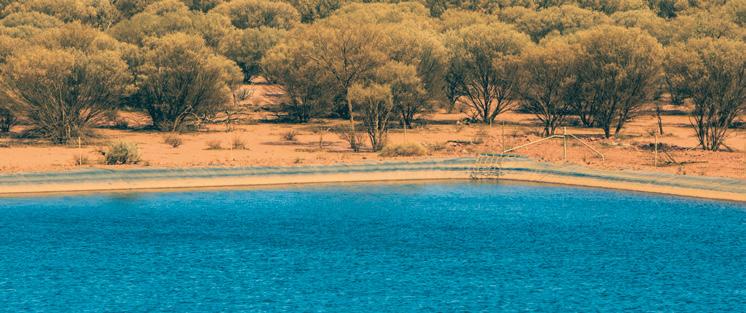
The World Resources Institute’s Aqueduct Water Risk Atlas tool indicates the following overall risk ratings for the locations in which Lynas operates:
Location
Gebeng, Malaysia
Overall water risk rating6
Low-medium
Mt Weld, Western Australia Low-medium
Kalgoorlie, Western Australia7 High
Mt Weld uses groundwater and recycled water and has established internal objectives and targets in line with the Lynas Environmental Policy to recycle process water. The percentage of recycled water used at Mt Weld was 29% in FY24 (30.7% in FY23).
Lynas set a bore water abstraction target of 5.00m3/ tonne ore processed for FY24 (this figure includes salty brine water to be evaporated). This target was not achieved in FY24, with 5.39m3/tonne ore processed.
6 https://www.wri.org/applications/aqueduct/water-risk-atlas
7 Lynas’ new Kalgoorlie Rare Earths Processing Facility was in commissioning during the year and began first production in the June 2024 quarter.
In conjunction with the Mt Weld Expansion project, a $30m recycled water treatment plant is being constructed (see Case Study 4 below). This larger, more efficient water recycling plant will deliver a significant step change improvement in internal water recycling and is expected to increase tailings water recycle yield to up to 90% and significantly reduce groundwater abstraction. In FY25, Lynas aims to complete construction of the new Mt Weld water recycling plant.
Mt Weld abstracts groundwater from below the open pit mining activities. As a result, the open cut mine is progressively dewatered and this provides safe geotechnical conditions for mining. The groundwater is brackish in dissolved salts and requires reverse osmosis treatment to produce high quality water to the rare earth separation process. The salty brine water from the reverse osmosis is evaporated. Increasing the recycle of process water will help to reduce the abstraction of groundwater.
In Kalgoorlie, our new Rare Earths Processing Facility has been designed to use treated recycled grey water for processing. The recycled grey water is a by-product from the City of Kalgoorlie-Boulder’s wastewater treatment facility and will be used a further 6–7 times in processing. It is supplied under a commercial agreement with the City.
In Malaysia, Lynas uses scheme water (city water) provided by the local water utility provider. Lynas Malaysia has three process water ponds with a total capacity of 38,000m3 which can supply water to the plant as needed at a rate of approximately 600m3/hr at 100% capacity. A dedicated water flow meter has been installed to process the incoming city water, enabling our team to precisely monitor water consumption. Research and development into water and chemical recycling at Lynas Malaysia continued during the year.
There were no significant water-related incidents during FY24.

Initiatives to reduce fresh water usage at Mt Weld include reducing the amount of bore water abstracted per tonne of ore processed, and investing in a $30m state-of-the-art water recycling plant.
The new process is targeting a step change in water recycling from approximately 30% of tailings water recycled to up to 90% of tailings water recycled.
The new water recycle process represents 3 years of development work and has been designed to address key water quality challenges of silica, organics and hardness to deliver a robust flowsheet.
New borefields will also be established to provide additional brackish water supply to complement fresh water supply.
Effluent and wastewater management
Lynas’ sites in Western Australia, Mt Weld and Kalgoorlie, are zero discharge sites. This means they have on site wastewater management systems and do not discharge wastewater into the environment.
In Malaysia, Lynas operates two wastewater treatment plants which operate in compliance with regulations. Once water has been used in Lynas Malaysia’s operations, it is treated and tested to ensure that it meets water quality standards prescribed by the Department of Environment prior to being released. Wastewater quality is strictly governed by Malaysian Industrial regulations and water quality standards. Wastewater quality samples are assessed by Lynas’ on-site laboratory and by an accredited independent third party laboratory.
Once the treated water is deemed suitable for release, it is tested at 11 water quality monitoring stations along the Balok River. The Department of Environment has publicly stated that water leaving the Gebeng Industrial Estate is of a higher quality than water entering the Estate due to water treatment undertaken prior to discharge.
Lynas reports on air emissions to the National Pollutant Inventory annually for Australian sites. Air emissions data is available in Section 9 Performance Data Tables.
Air quality monitoring at Mt Weld included high-volume environmental dust monitoring from several locations across the site as part of the Mt Weld Radiation Management Plan. All samples were found to be within acceptable limits in FY24.
Lynas carries out ambient and stack release measurements at Lynas Malaysia and Lynas’ Kalgoorlie site.
At Lynas Malaysia, Ambient air quality is measured at three locations within 5 km from the Lynas Malaysia plant. Lynas met all emission standards during FY24.
Radiological air monitoring is also undertaken at Lynas Malaysia via two Aerosol Monitoring Systems that measure external radiation and radon-thoron activity concentrations at two locations (onsite and in the city of Kuantan). Monitoring shows there has been no change to background levels at both locations since Lynas Malaysia’s operations commenced in 2012.
In line with the circular economy, Lynas’ approach to industrial by-products prioritises initiatives to: reduce, reuse, recycle, and only then to implement safe long term storage/disposal.
Waste management involves numerous systems to control waste management processes and identify the most appropriate methods of disposal as a last resort. All waste materials are stored and disposed of in a safe and responsible manner.
Across our Western Australian sites, Mt Weld and Kalgoorlie, and our Perth head office, separation of recycling materials is conducted to facilitate efficient recycling.
We participate in the Containers for Change initiative at both our Mt Weld and Kalgoorlie facilities with funds going to support local not for profit community organisations. Bottle and can recycling from Mt Weld supports the Laverton Sports Club and the Mt Weld Social Club and in Kalgoorlie supports the Sandalwood Family Centre (see Case Study 5 opposite).
Lynas recycles a range of materials from our sites including:
• Plastic bottles and cans
• Scrap metal
• E-waste
• Used oil
• Batteries
• Aerosol cans
• Fluorescent tubes and globes
• Intermediate bulk containers (IBCs)


In FY24, our Kalgoorlie Rare Earths Processing Facility was proud to partner with the Sandalwood Family Centre in Kalgoorlie for the Containers for Change recycling program. The non-profit Sandalwood Family Centre provides services including a popular intergenerational playgroup which brings together toddlers and older residents.
Five intermediate bulk containers (IBCs) were placed at various locations around the Kalgoorlie site to collect plastic bottles and cans for recycling. In FY24, we were pleased to donate over 2,500 plastic bottles and cans to the Sandalwood Family Centre, with the funds raised contributing to a revamp of the backyard play area at the Centre which is used by 15 community groups.
The Kalgoorlie team continues to collect plastic bottles and cans to assist the fundraising efforts of the Sandalwood Family Centre. In FY24, the Centre was also a recipient in the Lynas Local Giving community grants program.
Controlled and scheduled waste
Mt Weld operates an onsite licenced landfill and engages licensed third party operators to collect and manage controlled waste. Controlled Waste is traceable via the Department of Water and Environment Regulation (DWER) waste tracking network.
Lynas’ Kalgoorlie site engages licenced 3rd parties to collect and disposed of controlled waste to authorised waste facilities within the Kalgoorlie region.
In Malaysia, scheduled wastes generated from operations are managed and stored responsibly in purpose built facilities approved by regulators, or collected by a licensed waste contractor approved by the Department of Environment, Malaysia (DOE).
Mt Weld tailings deposition and consolidation
Rare earths production generates tailings at Mt Weld, composed of the gangue minerals, unrecovered rare earth minerals, and water from the floatation process.
Mt Weld implements accelerated mechanical consolidation of tailings so water can be recycled and tailings can be dry stacked and stored in Mt Weld tailings storage facilities (TSFs) for future re-processing.
In FY24, accelerated mechanical consolidation led to a further improvement in consolidation (dry density). Mt Weld’s three TSFs continue to operate under the protocols that have been progressively developed (including layered Rheomax® ETD tailings deposition, solar drying, Amphirol accelerated mechanical consolidation and contouring using a low pressure bulldozer) and which have resulted in a 50% reduction in the tailings volume requiring storage for the same tailings mass.
In 2019, Lynas completed the Mt Weld Tailings Dam Questionnaire, in response to the Investor Mining & Tailings Safety Initiative. You can view the responses on our website at https://lynasrareearths.com/sustainability/ residue-tailings-management/.
In 2024 we had zero significant incidents at our tailings storage facilities.
The annual geotechnical audit of the Mt Weld tailings storage facilities was completed in the January 2024 and were found to be compliant with State regulatory requirements.
The Kalgoorlie Rare Earths Processing Facility produces two by-products, a gypsum and an iron phosphate, as part of its processing. These by-products are non-hazardous, not dangerous goods and while the iron phosphate contains very low level naturally occurring radioactive material (NORM) that is found in our Mt Weld ore, this very low level is not classified as radioactive for transport purposes in Australia.
Our Malaysian operations produce two solid residues as by-products which are stored in dry stacked facilities:
• A magnesium rich gypsum known as NUF (Neutralisation Underflow) which is non-toxic and non-radioactive
• An iron phosphate material known as WLP (Water Leached Purification) that contains very low level Naturally Occurring Radioactive Material (NORM)
NUF has been shown by Golder Associates (2014) and Standards and Industrial Research Institute of Malaysia (SIRIM) (2018) to be a non-toxic and non-hazardous material with negligible human health risk. In addition, its chemical composition showed potential for use in agriculture and the manufacturing of cements. NUF is non-hazardous according to the Globally Harmonised System of classification and labelling of chemicals. NUF is not classified as a dangerous good by the criteria of international air, road and sea transport (UNTDG, IMDG, IATA).
In line with the variation to Lynas’ Malaysian operating licence in October 2024, Lynas Malaysia has committed to increasing the existing research and development (R&D) investment in Malaysia from 0.5% to 1% of Lynas Malaysia’s gross sales. The R&D program, overseen by the Malaysian Atomic Energy Licensing Board (AELB), is directed towards developing methods for removal of naturally occurring radioactive material (NORM) from residues. Lynas manages the R&D investment funds and has dedicated senior scientists to progress developments alongside researchers from leading Malaysian institutions.
Construction of the Permanent Disposal Facility (PDF) for WLP residue from the Lynas Malaysia plant is ongoing. Construction of the first two cells is complete and the first cell has been filled with dry stacked WLP residues. Work on the remaining cells continues.
We care for the communities in which we work and live, making it a priority to take an active role in building better communities.
We aim to share the sustainable benefits of our operations by making a positive contribution in our four priority areas:
• Education and skills
• Health and wellbeing
• The environment, and
• Supporting vulnerable community members
The Lynas Community Policy outlines our commitment to employing local people and sourcing from local businesses in each of our operations. We have internship programs at Lynas Malaysia and Mt Weld with a focus on employing local young people.
Lynas acknowledges and respects the Traditional Owners of the lands on which we operate. In Western Australia, we aim to increase training, employment and supplier opportunities for Aboriginal and Torres Strait Islander peoples and enrich our workforce through inclusion, understanding and appreciation of Aboriginal and Torres Strait Islander cultures. In FY23, Lynas’ first Reconciliation Action Plan (RAP) was approved by Reconciliation Australia. This Reflect level RAP provides the framework for the development of our reconciliation commitments and Lynas has continued to progress RAP actions this year, including online cultural awareness training for all employees in Australia.
Our approach to local engagement includes information and consultation with local communities as well as partnerships with community organisations and educational institutions. Lynas undertakes a stakeholder identification process and engages and consults with our local communities and other interested parties regarding environmental approvals. Lynas undertakes Economic Impact Assessments for major projects and assessments of the effects of significant changes to our operations on our local communities.
Lynas has a Community Feedback and Grievance Procedure that guides our response to feedback and grievances received from community members.
In FY24, there was continued engagement and consultation with our communities in Malaysia and Western Australia, including regarding the Mt Weld expansion project, the new Kalgoorlie Rare Earths Processing Facility and the planned U.S. Rare Earths Processing Facility in Texas.
Community engagement and consultation with local communities in Texas included hosting a community Open House to share information on the proposed new rare earths processing facility and a community survey to enable community members to express their views and provide feedback on the project.
In all locations, Lynas participates in local community, business and education activities and meets with members of our local communities. We also participate in community forums and publish information for community members including FAQs and project updates.
8.1.1 Absolute number and rate of employment
At June 30, 2024, Lynas employed 1117 people across Malaysia and Australia. Our employees include geologists, engineers, metallurgists, tradespeople, process technicians and others in support functions across both operating sites (Mt Weld and Lynas Malaysia) as well as our new Kalgoorlie Rare Earths Processing Facility in WA (which was under commissioning and achieved first production in the June quarter of FY24) as well as professional and administrative functions undertaken at our offices in Perth, Western Australia and Kuala Lumpur, Malaysia.
In FY24, expatriates accounted for 7% of our employees across our operations. The percent of expatriates has increased compared to FY23 due to a number of Malaysian employees assisting with the ramp up of the new Kalgoorlie facility, providing more than 10 years of cracking and leaching experience to the new Kalgoorlie operation. They are working across plant operations, engineering, maintenance and process improvement.
During FY24, Lynas’ planned U.S. Facility was not operational and had zero employees.
Further detail on employee figures, including turnover, is available in Section 9 Performance Data Tables.
8.2.1 Business resilience
The 2024 financial year demonstrated Lynas’ ability to operate a profitable business through a challenging market and price cycle as a result of strong financial discipline, an unrelenting focus on identifying and capturing cost efficiencies, and a clear focus on key customer requirements. As a result of a continued focus on operational efficiencies and cost control, Lynas reported revenue of $463.3m and Net Profit After Tax (NPAT) of $84.5m for FY24. This is compared to revenue of $739.3m and Net Profit After Tax (NPAT) of $310.7m for FY23.
In FY25, the team remains focused on fulfilling key customer needs, maximising internal efficiencies and delivering excellent value for our shareholders.
8.2.2
In line with our commitment to prioritising local procurement, in FY24, 75% of inputs for Australian operations were procured at the local level (i.e. Western Australia) and 89% of inputs for Malaysian operations were procured at country level (Malaysia). Lynas is a key customer to many local suppliers, including indigenous owned businesses in Western Australia.
See Section 9 Performance Data Tables for Lynas’ direct economic value generated and distributed in FY24.
Supplier sustainability initiatives
Lynas continues to work to enhance its global supplier onboarding procedure. In FY23 Lynas assessed a number of digital data platforms for suitability to assist our data management and risk assessments. A preferred platform was selected and data based risk assessment was integrated in FY24.
The data management platform supports the distribution and collection of Supplier Self-Assessment Questionnaires (SAQs) and the identification and follow up of higher risk suppliers. With the new system, a new SAQ form was shared with all ongoing suppliers and will be distributed to new suppliers as they commence supply agreements with Lynas.
8.2.3
In FY24, $579.3m was invested in capital and mine development projects, primarily related to the new Kalgoorlie Rare Earths Processing Facility, the Mt Weld expansion project, and capacity and efficiency projects at Lynas Malaysia.
Capital expenditure is expected to be approximately $400 - $500 million in FY25 for sustaining capital and major growth projects. This includes expenditure in respect of: the Mt Weld expansion project to increase concentrate feedstock; the Lynas Malaysia industrial plan, including increased processing capacity and the introduction of a new DyTb separation circuit; sustaining capital increases and preventative maintenance; other ongoing operational capital expenditure across all Lynas sites; and operating costs that are capitalised in accordance with normal accounting principles.
Lynas did not conduct share buybacks or issue any dividend payments in FY24.

On 25 July 2024, Lynas Malaysia celebrated over 10 years of partnering with Malaysian businesses at the 2024 Vendor Appreciation Day.
The Vendor Appreciation Day recognised the valuable role local businesses play in Lynas’ ongoing success as the only significant producer of separated rare earths outside China. Many of the suppliers in attendance have worked closely with Lynas since operations first started in Malaysia. Lynas is proud to employ local people and local suppliers and this is one of the ways we can contribute to the communities in which we work and live and share the sustainable benefits of our operations.
Through Lynas, Malaysia has become the only rare earths centre of excellence outside of China, and our people and partners have played an important role in developing and maintaining this position.
The event allowed Lynas to thank the companies who have supported the company throughout the years, including some challenging times, as we continue to work together uphold operations to the highest standards.
Rare earths are used in future facing technologies designed to lower emissions and reduce energy consumption, as well as to improve efficiency, performance, speed, durability, and thermal stability. We have an in-house research and innovation (R&I) team that is focused on both continuous improvements and breakthroughs in processing, consumption of resources including energy, water and chemicals, and new product development. Lynas also collaborates with leading universities and research institutions in Australia and Malaysia on research projects.
The Lynas R&I team have utilised internal expertise in product purity, surface and formulation to develop new clean energy technologies. The clean energy technologies require a new generation of catalysts, materials and processes able to facilitate hydrogen generation, transport, storage and distribution as well as capturing and adding value to carbon dioxide. Lynas partners with global players in the energy sector, new equipment makers and leading universities across the world on R&D initiatives.
Lynas invested approximately $10.1m in R&D during 2024.
Lynas has been active in international standards development for Rare Earth supply chain. This includes involvement in the development and publication of ISO traceability standards covering the rare earth supply chain from mine to magnets; participating in working group activities related to Sustainability standard development; and active involvement in the creation of ISO standards for rare earth analytical methods.
In the future, Lynas will continue our active participation as a voice for the establishment of international standards based on market and industry needs. This includes championing issues faced by responsible rare earth producers such as Lynas and assisting with the development of tools to ensure that rare earths products entering the supply chain are sourced from legal miners and producers who abide by best practices on environmental stewardship, human rights and sustainability.
8.4.1 Total taxes and royalties paid
Taxes and royalties paid in FY24 totalled $61.9m.
In FY23, Lynas Malaysia’s pioneer status (income tax exemption) was renewed through to January 2026.
8.4.2 Total social investment
The focus of our social investment is in the areas of health and wellness, education and employment, and supporting vulnerable community members.
In FY24, direct community investment and related expenditures across our operations were approximately $0.4m, plus employee volunteering hours and ad hoc sponsorship and donations.
Key community investment initiatives for our Western Australian and Malaysian operations are outlined in Case Study 7 below.
Case Study 7: Supporting communities through local investment initiatives
Lynas makes it a priority to take an active role in building better communities. We aim to make positive contributions by focusing on local initiatives in four key areas; education and training, health and sport, environment, and vulnerable community members. In 2022, Lynas launched the Local Giving Program in WA to provide one-off grants of up to $500 to support local community organisations making a difference in these 4 areas. To date, the program has supported around 40 local organisations in WA.
The below table outlines examples of other key community investment activities for FY24 in Australia and Malaysia.
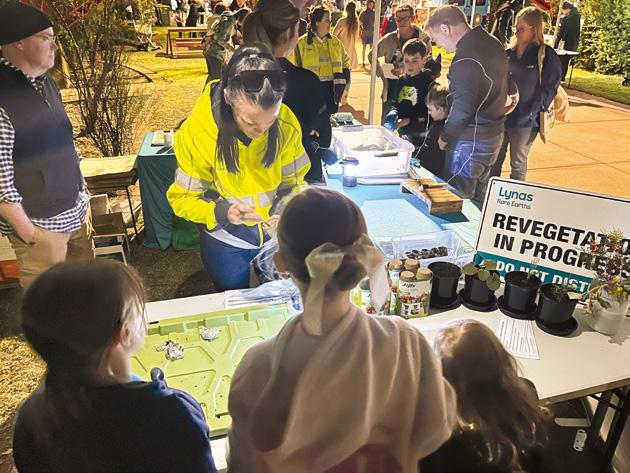
5-year commitment to Curtin University’s Moorditj Yorga Scholarship for mature-aged First Nations women to attain an undergraduate degree.
Lynas booth at the Science After Dark science fair held at the Museum of the Goldfields as part of National Science Week.
Long term member of the Laverton Cross Cultural Association (LCCA), supporting art gallery and youth engagement and development activities. University student site visits.
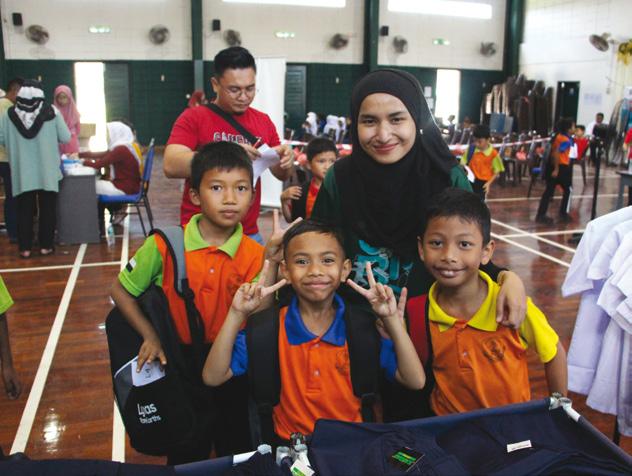
Staff volunteering programs to maintain community facilities; painting and gardening at local schools and preschools.
Back-to-School program in FY24, included children from 700 families at 18 participating schools. University student site visits.
Case Study 7: Supporting communities through local investment initiatives (continued)
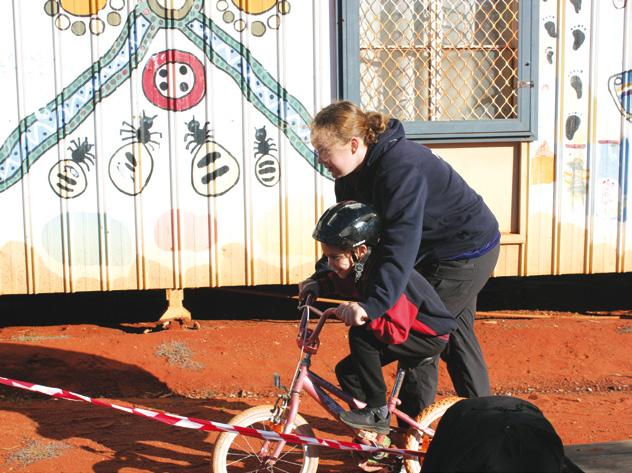
Australia
Supported Cycling Development Foundation youth activities in Laverton, including cycling skills, group rides and bike repairs.
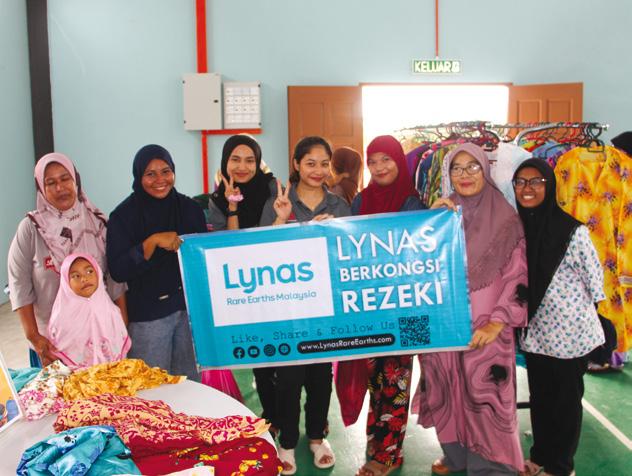
Malaysia
Health and optometry checks for community members during bi-monthly recycling programmes with local villages.
Football, netball, futsal, bowling and badminton games with the community and surrounding community teams.

Australia
3-year sponsorship of Kalgoorlie-Boulder Urban Landcare Group (KBULG); staff participation in annual Tree Planting Day.
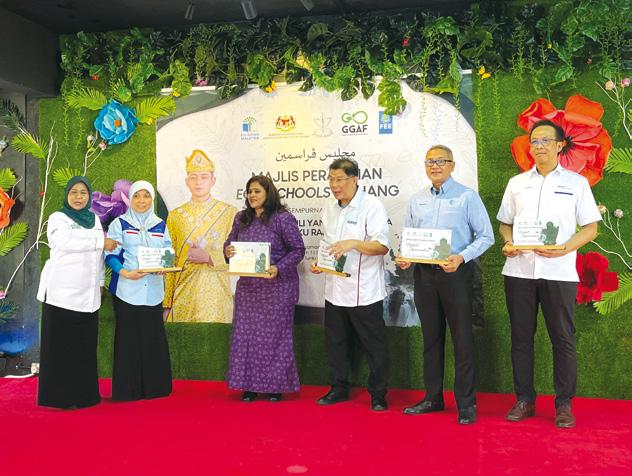
Malaysia
Supported EcoSchools Pahang program integrating climate change education within the national curriculum for primary and secondary schools.
Case Study 7: Supporting communities through local investment initiatives (continued)
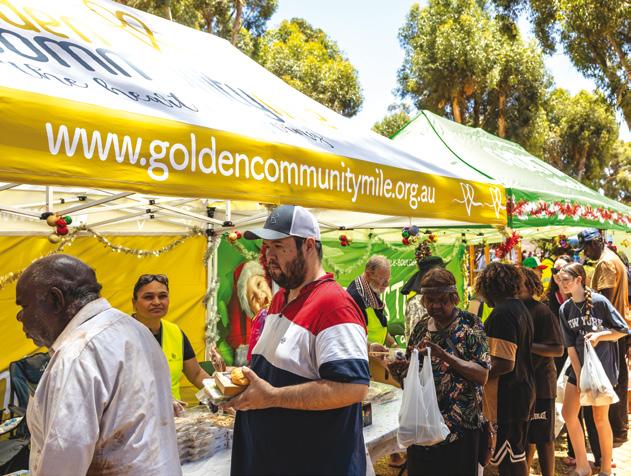
Supported the Kalgoorlie Christmas in the Park lunch, which brings the community together and provides lunch to all attending and a gift for all kids.
Supported emergency efforts by donating two generators to the local nursing home to help keep residents cool, during the significant and extended power outage in January.
Supported the Stephen Michael Foundation’s volunteers with flights to and from Laverton. Sponsorship of 2024 NAIDOC Youth Ball, Kalgoorlie.
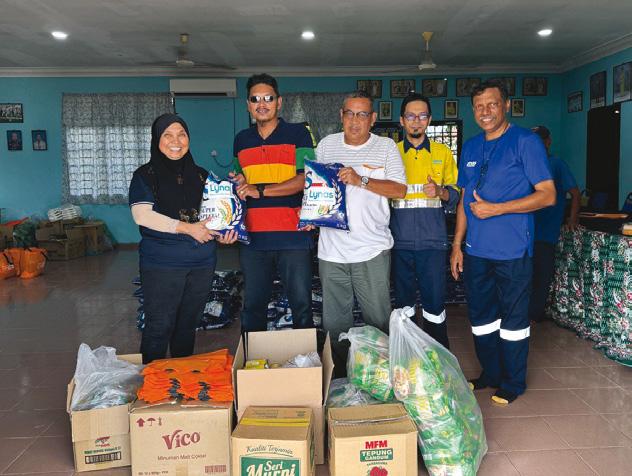
Chinese New Year donations to community, childcare and aged care centres.
Hari Raya contribution of grocery supplies to 19 local communities.
Donations of groceries and essential supplies to local community organisations.

Country Australia Australia Malaysia Status
Certified to ISO 9001:2015 (Quality Management), ISO 14001:2015 (Environmental Management) and ISO 45001:2018 (Occupational Health and Safety Management).
* Lynas’ new Kalgoorlie site was under commissioning in FY24
Confirmed incidents of corruption
Incidents confirmed in FY24 related to previous years
Incidents confirmed in FY24 related to the current year
View Lynas’ anti-bribery policy: https://lynasrareearths.com/wp-content/uploads/2021/04/Anti-Bribery-Policy.pdf
Reporting unethical behaviour
Concern
Number of reports
View Lynas’ Code of Conduct policy: https://lynasrareearths.com/wp-content/uploads/2023/09/Code-of-Conduct_updated-18September-2023.pdf
View Lynas’ Human Rights policy: https://lynasrareearths.com/wp-content/uploads/2024/08/Lynas-Human-Rights-Policy_22August-2024.pdf
View Lynas’ Whistleblower policy: https://lynasrareearths.com/wp-content/uploads/2023/09/Whistleblower-Policy_updated-18September-2023.pdf
Diversity
of women (%)
* Senior executives defines as all managers and above including CEO, CEO-1, -2, -3
** 40:40:20% is a best practice gender equality target and represents 40% women, 40% men, 20% any gender. Performance against this target may vary due to the timing of Board composition changes.
View Lynas’ Diversity and Inclusion policy: https://lynasrareearths.com/wp-content/uploads/2024/08/LynasDiversity-and-Inclusion-Policy_22-August-2024.pdf
View Lynas’ Occupational, Health and Safety policy: https://lynasrareearths.com/wp-content/uploads/2021/04/Occupational-Health-andSafety-Policy.pdf
Mt Weld energy produced and energy consumed
Reporting Year
Kalgoorlie Energy produced and energy consumed
– Scope 1
Lynas Malaysia primary and secondary energy consumption
–
View Lynas’ Energy policy: https://lynasrareearths.com/wp-content/uploads/2021/04/Energy-Policy.pdf
Our GHG Performance
tonnes of CO2 equivalents (tonnes CO2-e)
View Lynas’ Climate Change policy: https://lynasrareearths.com/wp-content/uploads/2023/11/Lynas-Climate-Change-Policy-28-Nov23.pdf
Water summary by site (M3) Site
* Includes both treated recycled grey water and potable water.
8 Mt Weld expansion project construction commenced in FY23 and continued in FY24
9 Data as per FY23 National Greenhouse Energy Reporting (NGER) scheme reporting 10 Kalgoorlie facility in commissioning during FY24 and commenced production in June quarter FY24
Air Quality: Site level (tonnes) Sulphur oxides (SOx)
Malaysia Monitored at stack and ambient air Monitored at stack and ambient air Monitored at ambient air
* Air emissions at Mt Weld and Kalgoorlie are primarily attributed to the combustion of diesel in mining machinery, transport, power generation and processes. Data included is consistent with Australia’s National Pollutant Inventory reporting requirements (not applicable for Malaysian operations).
** PM10 (dust) excludes emissions from materials handling.
View Lynas’ Environment policy: https://lynasrareearths.com/wp-content/uploads/2024/08/Lynas-Environmental-Policy_22-August-2024.pdf
* Percent of Australian nationals has decreased on FY23 due to a number of Malaysian employees working at the new Kalgoorlie facility in plant operations, engineering, maintenance and process improvement to assist in the ramp up of the facility.
Large scale redundancies
* Turnover by gender was not calculated in FY22 or FY23
Total employee costs (wages and other payments)
$0.4m Tax and royalty payments $61.9m
Grants received in relation to property, plant and equipment $32.6m
View Lynas’ Community policy: https://lynasrareearths.com/wp-content/uploads/2024/01/231128-Community-Policy.pdf
None of our projects have required physical or economic resettlement in the last ten years.
Stakeholders Engagement
Employees All Staff Briefings and Q&A with the CEO and executive team (held online)
Internal communication channels including daily pre-start meetings, team meetings, Company emails, site notices, intranet and company events
Employee training programs including safety, technical and leadership
Employee consultation on operational changes and safety matters
Company employee profit share scheme
Employee engagement survey
Customers Regular engagement, including face to face and electronic communication
Annual customer satisfaction survey
Ongoing R&D and product development
Mine to magnet traceability and life cycle analysis conducted in collaboration with customers and downstream partners
Visits to customer operations and customer visits to Lynas operations
Participation in development of industry ISO standards
Shareholders and Investors
Suppliers and contractors
Regular webcast briefings including quarterly, half year and full year results
Meetings and briefings with investors including post-result roadshows, conferences, and site visits
ASX announcements and email alert systems that allow interested parties to register for automatic notifications
Annual General Meeting (in person and online)
Priority given to development of capable local suppliers
Strategic relationships and partnerships developed with contractors and suppliers
Meetings, communication and reviews with strategic suppliers and contractors
Supplier Sustainability Policy & Code of Conduct and supplier audits
Stakeholders Engagement
Government and regulators
NGOs
Ongoing engagement with government representatives in operating countries and key markets
Ongoing reporting to and communication with regulators and government bodies on environmental performance and other key indicators in operating countries
Public information including financial results and social contribution
Providing site visit opportunities
Involvement in UN Global Compact and industry forums
Direct engagement with relevant NGOs
Reporting, ASX announcements and media releases
Maintenance of high environmental and community standards
Development of corporate policies
Communities Ongoing direct engagement with host communities
Prioritising local procurement
Support for community groups, programs and events
Lynas Local Giving Program to support grassroots community organisations with small grants
Educational institutions Site visits and work placement opportunities
Graduate and intern programs
Joint research opportunities
Participating in employer expos and industry forums
Research collaborations with CSIRO, ANSTO, Curtin University, Minerals Research Institute of WA, Japan Oil, Gas and Metals National Corporation (JOGMEC)
STEM-focused education programs incl. support for Pahang EcoSchools initiative in Malaysia
Participating in wide range of industry forums and events
The Index includes indicators from GRI 14: Mining Sector 2024 that are relevant for our business. Unless otherwise noted, all data applies for the year ended 30 June 2024. Disclosures for which we do not provide significant content in this report have been omitted from this table. GRI Standard Disclosure Location
General disclosures
2-1 Organisational details
2-2 Entities included in the organisations sustainability reporting
Our Operations – Page 6
Our Operations – Page 6
2-3 Reporting period, frequency and contact point Letter from Our Board Chair and CEO – Page 2
2-4 Restatements of information
2-5 External assurance
Our GHG performance – Page 40
Our ESG Reporting – Page 5
2-6 Activities, value chain and other business relationships Our Operations – Page 6
2-7 Employees Caring for our People – Page 15 Employment and wealth generation – Page 32
2-8 Workers who are not employees Caring for our People – Page 15
2-9 Governance structure and composition Principles of Governance – Page 7
2-10 Nomination and selection of the highest governance body Quality of governing body – Page 8
2-11 Chair of the highest governance body Letter from Our Board Chair and CEO – Page 2 Quality of governing body – Page 8
2-12 Role of the highest governance body in overseeing the management of impacts Quality of governing body – Page 8
2-13 Delegation of responsibility for managing impacts Quality of governing body – Page 8
2-14 Role of the highest governance body in sustainability reporting Quality of governing body – Page 8
2-15 Conflicts of interest
2-16 Communication of critical concerns
2-17 Collective knowledge of the highest governance body
Ethical Behaviour – Page 10
Quality of governing body – Page 8 Risk and Opportunity Oversight – Page 12
Quality of governing body – Page 8
2-18 Evaluation of the performance of the highest governance body Quality of governing body – Page 8
2-19 Remuneration policies Remuneration – Page 14 Pay equality – Page 16
2-20 Process to determine remuneration Remuneration – Page 14
2-22 Statement on sustainable development
and material topics – Page 9
2-23 Policy commitments Quality of governing body – Page 8
2-24
2-25 Processes to remediate negative impacts Letter from Our Board Chair and CEO – Page 2 Caring for our Planet – Page 20–30
2-26 Mechanisms for seeking advice and raising concerns Protected ethics advice and reporting mechanisms – Page 10–11
2-27 Compliance with laws and regulations Our ESG Reporting – Page 4
2-28 Membership associations Appendix 3: Memberships and Initiatives – Page 49
2-29
Market Presence
202-1 Ratios of standard entry level wage by gender compared to local minimum wage
202-2 Proportion of senior management hired from the local community
Indirect Economic Impacts
203-1 Infrastructure investments and services supported
203-2 Significant indirect economic impacts
Procurement practices
Caring for our People – Page 16
Caring for our People – Page 16, Employment and wealth generation – Page 32
Caring for our Communities – Building Prosperity – Page 31–36
Caring for our Communities – Building Prosperity – Page 31–36
204-1 Proportion of spending on local suppliers Caring for our Communities – Building Prosperity – Page 31
Water and Effluents
205-1 Operations assessed for risks related to corruption Ethical Behaviour – Page 10
205-2 Communication and training about anti-corruption policies and procedures
Ethical Behaviour – Page 10
205-3 Confirmed incidents of corruption and actions taken Ethical Behaviour – Page 10
Tax
207-1 Approach to tax
207-2 Tax governance, control, and risk management
Caring for our Communities – Building Prosperity – Page 31–36
Risk and Opportunity Oversight – Page 14 Energy
302-1 Energy consumption within the organisation
302-3 Energy intensity
302-4 Reduction of energy consumption
Caring for our Planet – Page 20–23
Caring for our Planet – Page 20–23
Caring for our Planet – Page 20–23 Water and Effluents
303-1 Interactions with water as a shared resource
303-2 Management of water discharge-related impacts
303-3 Water withdrawn
303-4 Water discharge
303-5 Water consumption
Caring for our Planet – Page 20–23
Caring for our Planet – Page 20–23
Caring for our Planet – Page 26–27
Caring for our Planet – Page 26–27
Caring for our Planet – Page 26–27
GRI
305-1 Direct (Scope 1) GHG emissions
305-2 Energy indirect (Scope 2) GHG emissions
305-3 Other indirect (Scope 3) GHG emissions
305-4 GHG emissions intensity
305-5 Reduction of GHG emissions
305-7 Nitrogen oxides (NOx), sulphur oxides (SOx) and other significant air emissions
Waste
306-1 Waste generation and significant waste-related impacts
306-2 Management of significant wasterelated impacts
306-3 Waste generated
306-4 Waste diverted from disposal
306-5 Waste directed to disposal
Supplier environmental assessment
Caring for our Planet – 20–23 Performance Data Tables – 38–40
Caring for our Planet – 20–23 Performance Data Tables – 38–40
Caring for our Planet – 20–23 Appendix 4: Scope 3 Evaluation Status – 50
Caring for our Planet – 20–23 Performance Data Tables – 38–40
Caring for our Planet – 20–23 Performance Data Tables – 38–40
Caring for our Planet – 28 Performance Data Tables – 41
Caring for our Planet – 28
Caring for our Planet – 28
Caring for our Planet – 28
Caring for our Planet – 28–30
Caring for our Planet – 28–30
308-1 New suppliers that were screened using environmental criteria Communities – Building Prosperity – Page 32
Malaysian memberships:
• Malaysian Australian Business Council
Australian memberships:
• Minerals Council of Australia
• The Chamber of Minerals and Energy of Western Australia
• Kalgoorlie-Boulder Chamber of Commerce and Industry
• Goldfields Aboriginal Business Chamber
• Australian Resources & Energy Employer Association

Category name
Category 1: Purchased Goods and Services
Category 2: Capital Goods
Category 3: Fuel- and Energy-Related Activities Not Included in Scope 1 & 2
Category 4: Upstream Transportation and Distribution
Category 5: Waste Generated in Operations
Category 6: Business Travel
Category 7: Employee Commuting
Category 8: Upstream Leased Assets
Category 9: Downstream Transportation and Distribution
Category 10: Processing of Sold Products
Category 11: Use of Sold Products
Category 12: End-of-Life Treatment of Sold Products
status
tons of CO2
to 30 tCO2eq per year, composed mainly of Air Travel emissions
applicable
tonnes of CO2
tonnes of CO2
Category 13: Downstream Leased Assets Not applicable
Category 14: Franchises Not applicable
Category 15: Investments Not applicable
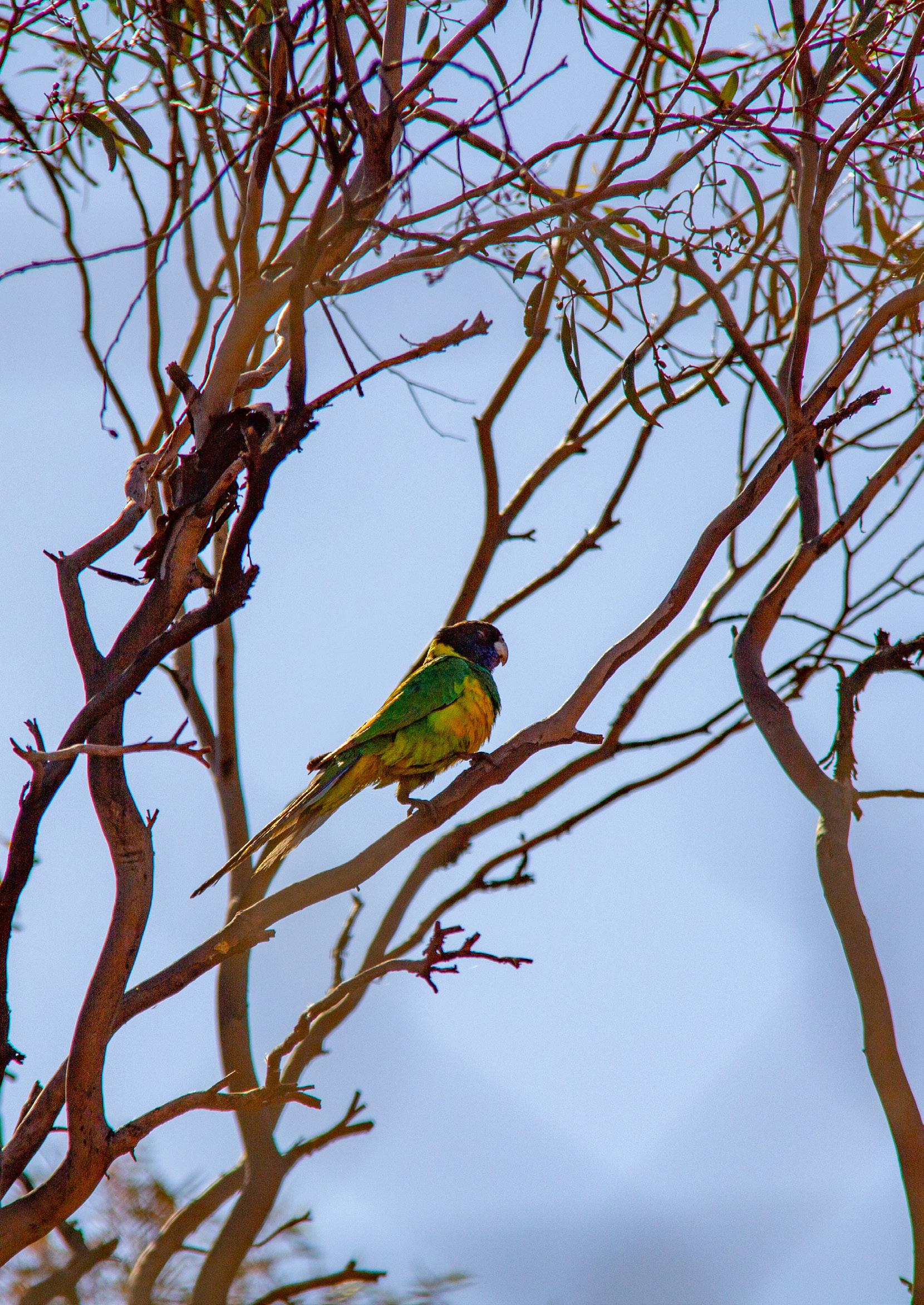
ABN 27 009 066 648
Registered Office
Level 4, 1 Howard St
Perth WA 6000
p +61 8 6241 3800
e general@lynasre.com
Malaysian Office
PT17212 Jalan Gebeng 3
Kawasan Perindustrian Gebeng
26080 Kuantan, Pahang Darul Makmur
Malaysia
p +60 9 582 5200
e general@lynasre.com